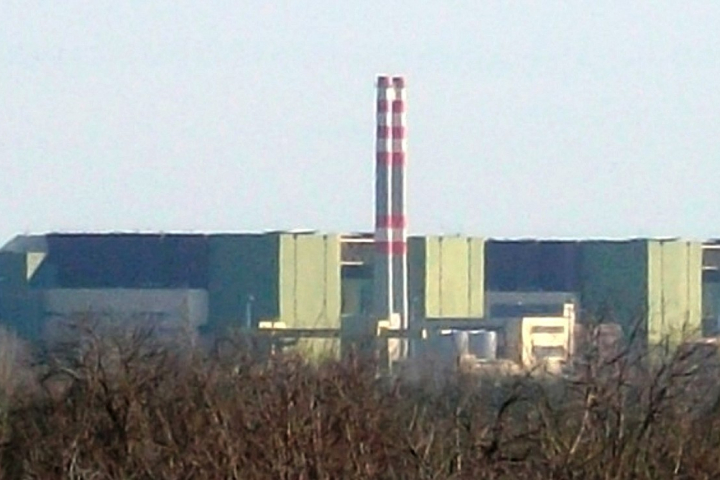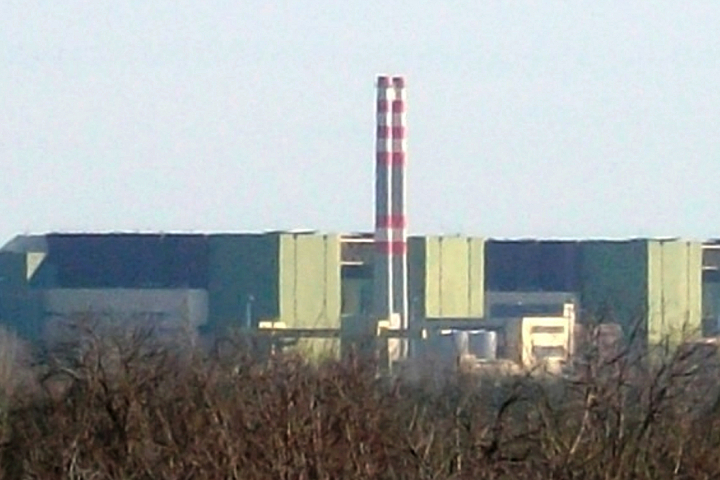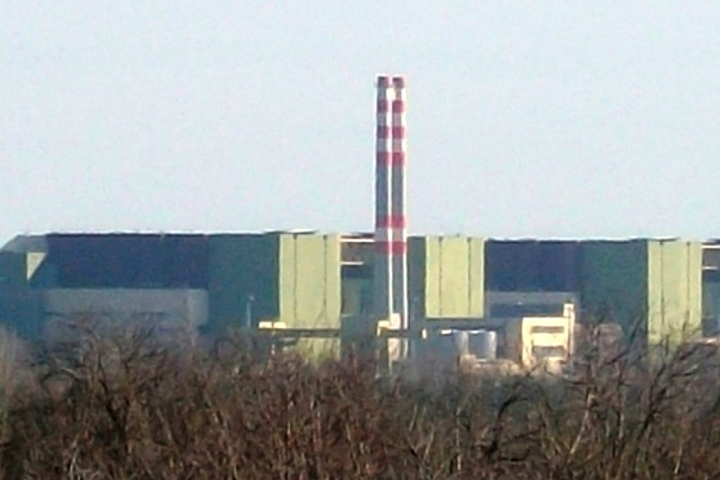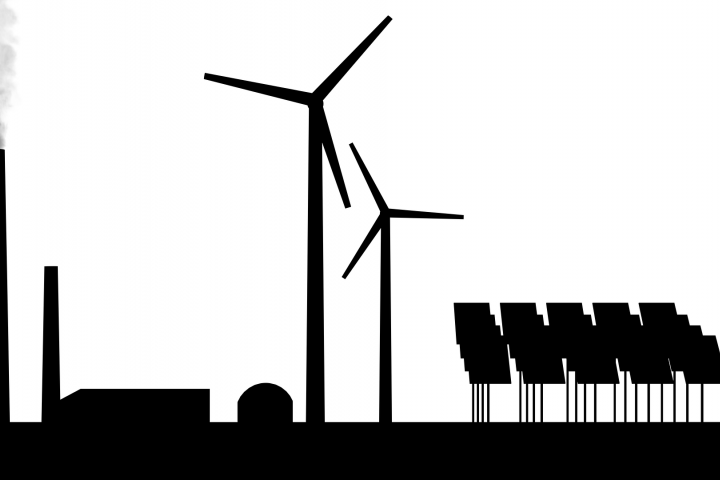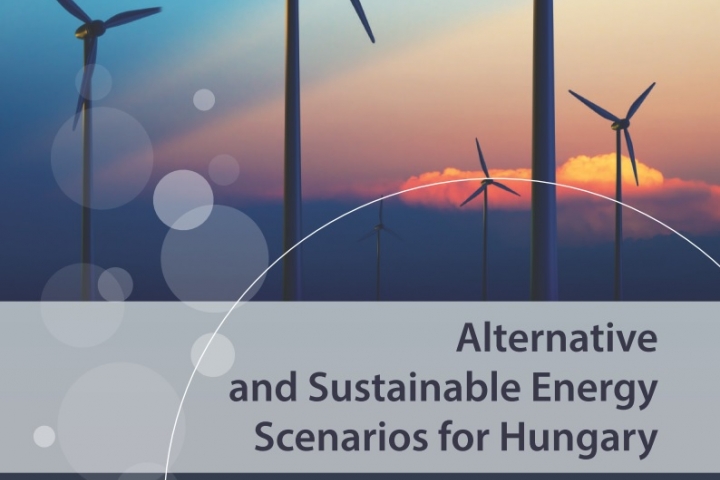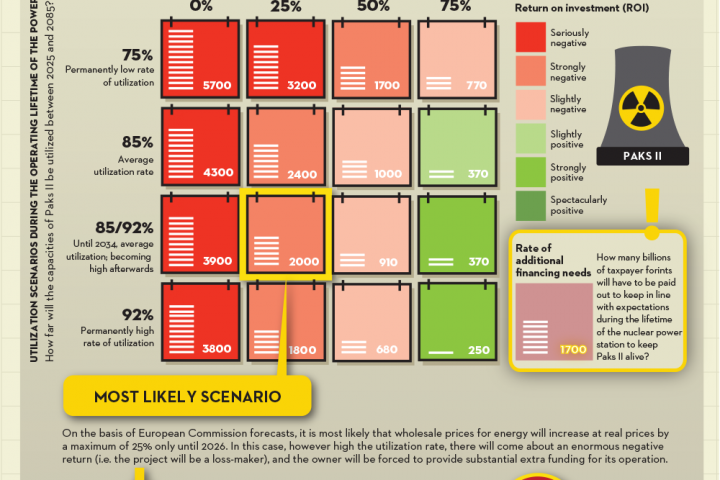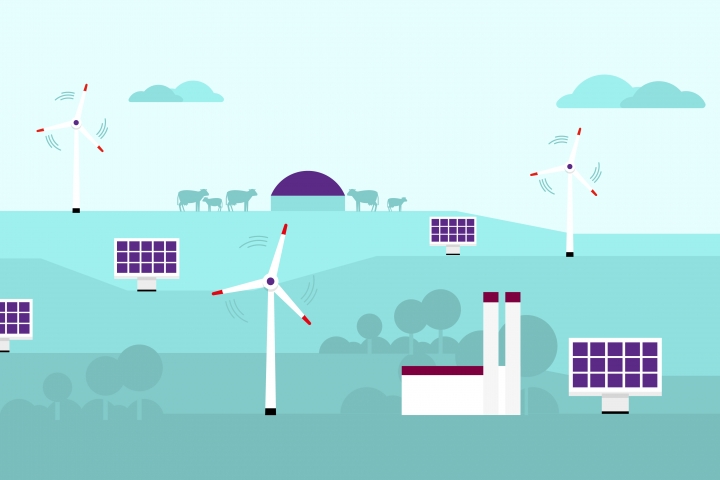The Paks Diaries - February 2024
There was no significant development in the Paks nuclear power plant construction project in February – only announcements were made and the project is now being advertised for potential Hungarian suppliers. The only important event was the prolonged shutdown of a unit of the operating plant.
Earlier this month, as reported by the local press, Paks II found new international cooperation. According to Telepaks, "the company coordinating the construction of the two new Paks units is in line with Western European trends". In an article published as a paid advertisement on the portal - and also in Paks Press - Attila Hugyecz, head of the company's international department, reported that the company had become a member of the European Nuclear Installation Safety Standards Organisation, EISS. The organisation includes the nuclear operators of 14 European countries, among others the German nuclear waste management company BGZ, the Northern European energy company Fortum (which sued Russia at the end of February), Swiss Nuclear, and French EdF and the energy trader Uniper , which is about to leave its nuclear connections behind. Paks II. Ltd considers it as a forum for 'national and European regulatory activities'. Industry networking is important and can be fruitful in all professions, but most importantly, it can show to the world that Russian technology investment is warmly received in fora of Western organisations. It is likely that the EISS membership will not result in realise significant benefits for the investor beyond diplomacy.
Nuclear industry connections should be treated with caution in terms of their importance and usefulness: Pál Kovács, former Undersecretary of the Ministry of Energy and former Deputy Chairman of the Energy Office, was a member and Vice-Chairman of the Governing Board of the International Atomic Energy Agency between 2013-2014, and his work had virtually no impact on the Paks project.
Attila Hugyecz said, "It is useful if we share our experiences with each other, and learn about emerging international nuclear regulatory ideas in time or even be able to influence them." He said that EISS membership fits well with the links established with, for example, the World Association of Nuclear Operators (WANO) and the World Nuclear Association (WNA), but he also considers it important that Paks has contacts with projects in Belarus, China, Turkey and the recently launched Egyptian project. Attila Hugyecz also said that Paks II Zrt. sees it as its task to "build more active cooperation with Western European organisations, associations and companies", but he did not say how this could be achieved in connection with Russian projects in the East and the Middle East.
"The construction of Paks II is progressing smoothly", Péter Szijjártó told the camera on 6 February. The Foreign Minister said in a Facebook video that he had held talks again with Alexei Likhachev, who would be back in Hungary soon for further talks. It has not yet been revealed what the negotiations are about, but Szijjártó said that “first concrete” will be poured in December 2024 instead of March 2025. This would mean that the actual construction of the nuclear power plant could begin. However, this would require the Hungarian Atomic Energy Authority (HAEA) to grant the permit.
In the Hungarian press, several news outlets (Átlátszó, Telex, Napi.hu, hvg.hu, 444.hu, etc.) have thoroughly investigated what is really meant when Péter Szijjártó says that the construction of Paks II is underway and that the investors have obtained the necessary permits. Last autumn, HVG wrote about what is missing to obtain a permit. Index and Inforádió, which do not oppose the government narrative, reported (based on Péter Szijjártó as early as the summer of 2022) that the Paks II nuclear power plant could be built from September (i.e. September 2022). But an explanatory article made it clear that the minister's statements on the foundations and the licensing process has to be handled with care, just as his outbursts about the failure of Siemens Energy to deliver. The statistics of the International Atomic Energy Agency still do not include Paks II in the “under construction” category.
The project is now in the phase of gap walling and soil stabilisation works which prevent soil movement between the operational Paks I and the planned Paks II power plants. In the last week of February, Gergely Jákli, President and CEO of Paks II Ltd, gave a presentation at a conference of the Scientific Association for Energy Management. He said that the excavation of the soil under the future Paks-5 (Unit 1 of the Paks II power plant) is expected to start in the summer, and that the soil stabilisation of the Paks-6 unit will continue until summer 2025. By the middle of this year, some 70,000 piles will have to be driven into the ground, at varying depths, Portfolio reports.
An information day, which was reported by 24.hu at the end of February, was also part of the preparations for the construction of the new nuclear power plant. The news outlet presented that the Russian Atomstroyexport, through its Paks company (ASZE.Rt.), has started to recruit Hungarian subcontractors. ASZE.Rt. sent a letter to potential supply partners and subcontractors of the Paks project inviting them to an "information day", where they outlined what they might need for the project and when. As 24.hu writes: "Even before the war, many Hungarian companies did not consider it safe to undertake work for the Paks II construction. They were worried about payment discipline and the insurance system".
The ministerial video also revealed that production of the reactor vessel is scheduled to start in Russia in April. It must be added though, that the investor can only do so at his own risk. The production of this part is quite demanding, both because of its size and its weight, as a video made 7 years ago shows. Moreover, the construction of the reactor vessel is also a question of what specifications will be used to build it - and whether these specifications will ultimately be approved by the Hungarian authority (HAEA).
Szijjártó also said that the HAEA has already issued all the necessary permits "for ongoing works and those starting in the near future." Actually, in February the HAEA only published two new notices on this subject. One of them gives the green light for the construction of a warehouse for storing electrotechnical materials and cables, the other for the construction of an external paved area. But even in these two approvals (comprising a total of about 60 pages) the HAEA imposed several conditions on starting these two items, thus they will certainly have to wait for some time. This is usual practice at the HAEA, it often gives the green light to a new item while specifying pre-requisites for its various parts.
In the meantime, the annual major maintenance of Unit 4 of the Paks nuclear power plant has started. MVM Paks, the operator, did not disclose any additional information on the major overhaul of the reactor unit, but the HAEA did. It explained that the 'scheduled maintenance activities' would start at the time specified in the plant's medium-term maintenance plan, parallel to the replacement of the fuel elements, and, at the end of the work supervised by the HAEA, the unit will start up, provided that the related licence is issued by the HAEA. Experience in recent years has shown that such major repairs are often delayed and cannot be completed on schedule, resulting in production losses longer than originally calculated. In 2024 three out of the four units will be shut down for 4-6 weeks each in a relatively short time span . Major overhauls are scheduled for Paks Unit 4 from early February to mid-April, Paks Unit 2 from early May to early June, and Paks Unit 3 from late August to late September. If there are delays, some of these 500 MW losses of production may overlap.
Energiaklub continues to oppose the Paks II project, which is based on an outdated and expensive technology involving environmental and geopolitical risks and would tie down the Hungarian energy system in a constantly changing era full of technological innovations. Nuclear energy should be phased out in Hungary after the lifetime extension of Paks I. The lifetime extension can only be accepted if it fully complies with sustainability, economical, nature protection and energy security principles. If extended, it must not be used as an argument or coercion against the expansion of renewables becoming a strategic priority.
